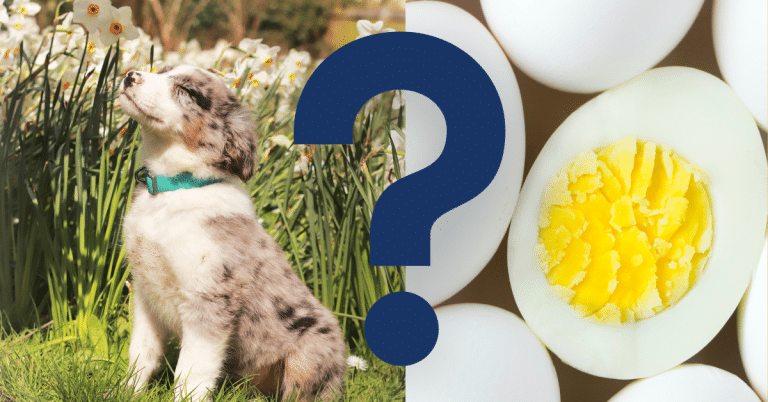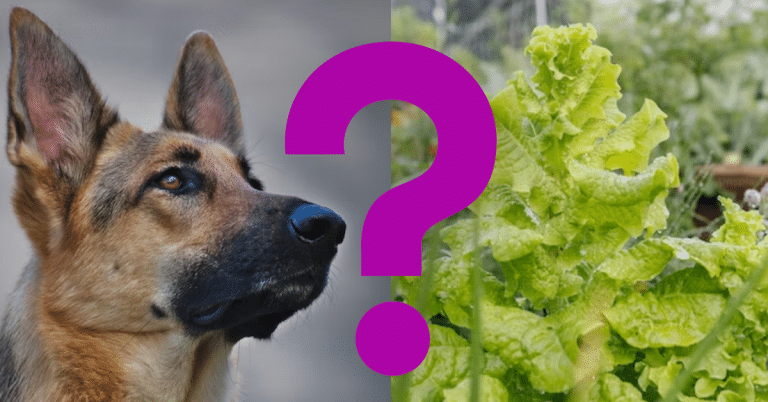Can Dogs Eat Sweet Potatoes? A Vet’s Opinion

Sweet potatoes are tasty, nutrient-dense, and high in fiber, and filling. They can be cooked, baked, steamed, or boiled for food. But can you feed sweet potatoes to your dog?
Can you feed sweet potatoes to your dog?
Indeed, they’re consumed in moderation and as part of a healthy dog diet. Beta-carotene, potassium, and vitamin C are just a few of the vitamins, minerals, and fiber in sweet potatoes that are excellent for dogs’ health. But before giving your dog sweet potatoes, ensure they are correctly prepared.
If your dog exhibits any digestive issues or other symptoms, cease feeding them sweet potatoes and call your vet.
Benefits Of Sweet Potatoes For Dogs
For canines, sweet potatoes have several health advantages, including:
Fiber
Sweet potatoes are an excellent source of dietary fiber, which can help with digestion and avoid constipation. Both soluble and insoluble fiber can help control bowel motions and prevent constipation. Fiber can also help keep healthy gut bacteria and promote overall digestive health.
Rich In Vitamins And Minerals
Sweet potatoes are high in vitamins and minerals helpful for dogs, such as beta-carotene, potassium, and vitamin C. For instance, the body transforms beta-carotene into vitamin A, which helps to maintain healthy vision, an effective immune system, and healthy skin. Potassium controls fluid balance, muscular contraction, and nerve signaling. The powerful antioxidant vitamin C promotes immune health and helps prevent cellular damage.
Immune System Booster
Antioxidants, found in sweet potatoes, can help strengthen the immune system and offer illness protection—Antioxidants aid in defending the body against free radicals and other dangerous elements that can harm cells. It can support a robust immune system and lower the chance of developing chronic diseases.
Promotes Healthy Skin And Coat
The beta-carotene in sweet potatoes can aid in developing canines’ shiny coats and healthy skin. Beta-carotene and vitamin C are present in sweet potatoes, supporting a healthy epidermis and a shiny coat. Vitamin A, which is necessary for developing and repairing skin cells, is created from beta-carotene. Collagen synthesis, which is essential for keeping healthy skin, is influenced by vitamin C.
Supports Weight Management
Sweet potatoes are low in calories and fat, making them a healthful choice for dogs who need to shed pounds or keep their weight in check. Dogs may feel full and satiated after meals thanks to sweet potatoes’ complex carbohydrates and dietary fiber. It benefits dogs trying to keep a healthy weight or lose weight.
Reduces The Chance Of Cancer
Dogs who eat sweet potatoes, which are also high in antioxidants, may experience a decreased risk of developing cancer. Sweet potatoes contain antioxidants that can help guard against cellular damage and lower the chance of cancer in dogs. It has been demonstrated that sweet potato beta-carotene, in particular, has anti-cancer qualities.
An Excellent Alternative To Grains
Sweet potatoes are a good grain substitute used in dog food, which is advantageous for canines with grain allergies or sensitivities. For canines with allergies or sensitivities to grains, sweet potatoes can be used as an alternative to grains in dog food. Sweet potatoes offer a variety of vitamins and minerals crucial for good health and are a good source of carbs and dietary fiber.
Remember that canines should only receive sweet potatoes in moderation and as part of a healthy diet. Before adding any new food to your dog’s diet, it is best to contact your veterinarian.

How To Safely Give Sweet Potatoes To Dogs
If you want to feed your dog sweet potatoes securely, follow these steps:
Choose Fresh Organic Potatoes
Aim for sweet potatoes that are firm, fresh, and free of blemishes or soft areas when selecting fresh, organic sweet potatoes. Organic sweet potatoes are preferred because they are less likely to have received herbicide treatment.
Wash And Peel The Potatoes
Sweet potatoes should be washed and peeled by rinsing them under cool water and using a veggie peeler. Removing the skin is essential because it can be challenging for dogs to digest.
Cut Into Bite-Sized Pieces
Cut the sweet potatoes into tiny, manageable pieces so your dog can easily chew and swallow them. Sweet potatoes can be mashed and added to your dog’s regular food.
Prepare The Sweet Potatoes
Sweet potatoes should never be served raw to your canine. Sweet potatoes can be cooked safely and healthily by boiling, roasting, or steaming. Spices and seasonings shouldn’t be used because they can hurt dogs.
Feed In Moderation
Due to their high calorie and carbohydrate content, sweet potatoes should only be fed to canines occasionally. A few tiny pieces of sweet potato per week may be adequate, depending on your dog’s size and activity level.
Keep An Eye Out For Allergic Reaction Symptoms
As with any novel food, watching for allergic reaction symptoms in your dog is crucial. Itching, swelling, sickness, and diarrhea are just a few symptoms. Stop feeding sweet potatoes to your dog and speak with your veterinarian if you observe any of these symptoms.
You can securely feed sweet potatoes to your dog as a wholesome and nourishing treat by adhering to these instructions.
Will Sweet Potatoes Make A Dog Sick?
In general, sweet potatoes are safe for dogs to consume and are not toxic or harmful to dogs. However, some dogs may experience an allergic response or digestive upset after eating sweet potatoes, just like with any new food. Itching, swelling, vomiting, and diarrhea are signs of an allergic response. It’s crucial to introduce sweet potatoes gradually and in small quantities to reduce the possibility of gastrointestinal distress. Give your dog a small amount of cooked sweet potato, to begin with, and watch for any indications of digestive upset or an allergic response. You can progressively increase the amount if your dog tolerates the sweet potatoes well.
It’s also crucial to remember that dogs should never be fed raw sweet potatoes. For dogs, raw sweet potatoes may be challenging to digest and may result in digestive issues. Before feeding the sweet potato to your dog, the skin should also be removed because it can be challenging for your canine to digest. The best course of action is to speak with your veterinarian if you have any reservations about feeding sweet potatoes to your canine. They can help you figure out the best method to include sweet potatoes in your dog’s diet and whether they’re a good choice for your particular dog.
Can dogs eat sweet potato variations?
Depending on the sweet potato variety. Generally, canines can safely consume plain, cooked sweet potatoes with several health advantages. However, dishes made with sweet potatoes that include additional ingredients like sugar, salt, butter, or spices might not be suitable for canines because these ingredients can be unhealthy.
Following are some popular sweet potato varieties and information on whether canines can safely consume them:
- fried sweet potatoes
- crispy sweet potato
- dog snacks made from sweet potatoes
- pureed sweet potatoes

Vet’s Summary
When given in moderation and prepared correctly, sweet potatoes can be a healthy and nourishing addition to a dog’s diet. They are an excellent source of dietary fiber, vitamins, and nutrients to help dogs’ immune systems and digestive health. Picking fresh, organic sweet potatoes, washing and peeling them, chopping them into small pieces, and cooking them without additional ingredients or seasonings are all necessary steps to securely feeding sweet potatoes to your dog. Additionally, it’s crucial to introduce sweet potatoes gradually and in small doses while keeping an eye out for any symptoms of digestive upset or allergic response in your dog.
A dog’s diet may benefit from adding probiotic supplements, particularly if the dog has digestive problems or a history of taking antibiotics. Live bacteria called probiotics can aid in maintaining a healthy mix of good bacteria in the gut, which in turn can support immune function, lessen inflammation, and enhance digestive health. Choose a high-quality probiotic supplement for your dog that is specially formulated for canines and includes a variety of strains of helpful bacteria. Additionally, it’s crucial to closely follow the dosage guidelines and gradually add the supplement to your dog’s diet. While many dogs benefit from probiotic supplements, it’s always a good idea to check with your doctor to ensure they are the right choice.
Videos To Watch
If you want to know what a dog can NOT eat, watch this:






